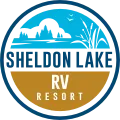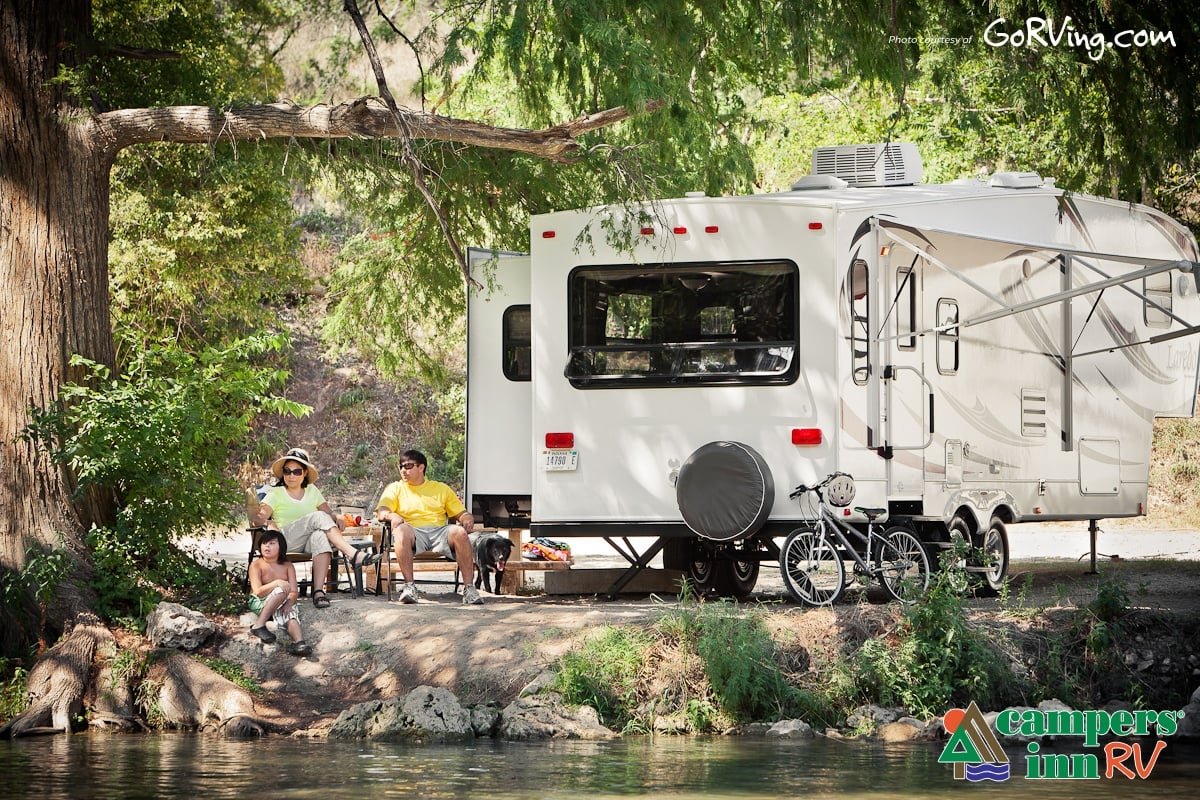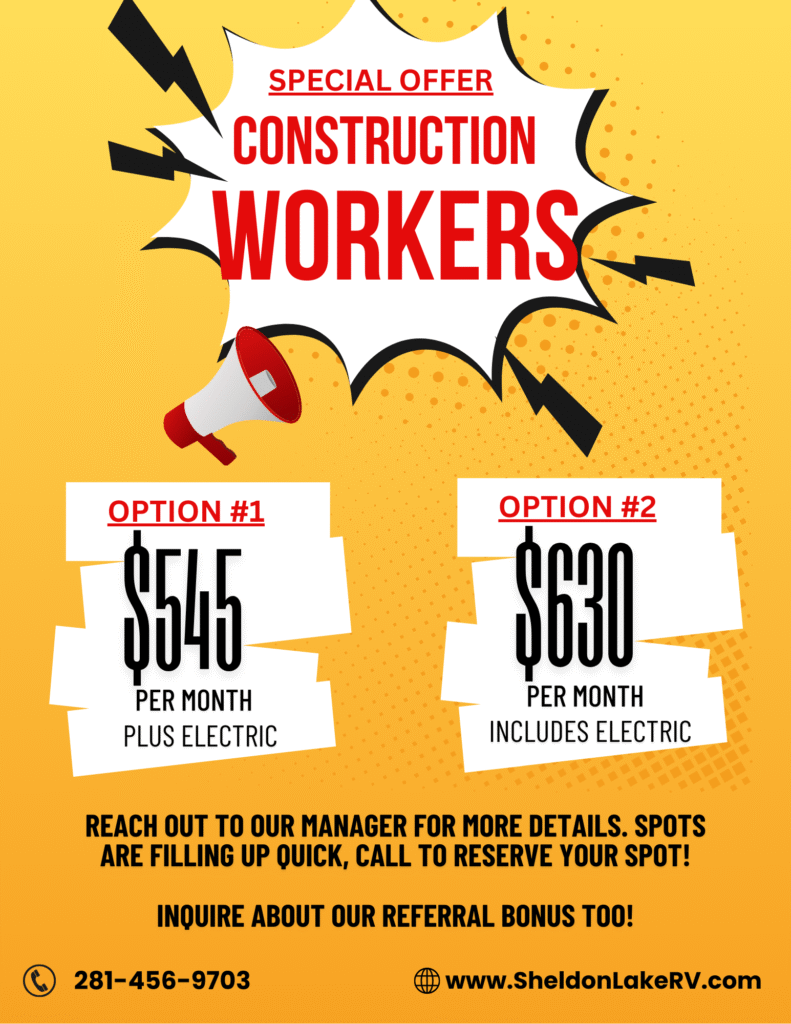When an RV pulls into a resort site, something more begins than just a stay. RV travel isn’t just mobility—it’s about community, shared stories, mutual aid, and connections that often remain unseen. In the Houston area, RV resorts are more than just places to stay; they become nodes in a social network that connects travelers, locals, workers, adventurers, and seasonal residents. Here’s a deep dive into how these networks form, what they look like, why they matter, and how resorts like Sheldon Lake RV help them thrive.
What Are These Hidden RV Traveler Networks?
- Seasonal & Long-Term Residents: People staying for weeks or months (e.g. snowbirds, traveling professionals) who become regulars. They often exchange tips about best routes, local services, shared maintenance, or supply sources.
- Work & Project Travelers: Contractors, filmmakers, energy-sector workers, consultants who relocate temporarily. They rely heavily on peer recommendations: where to get service for appliances, the best local groceries, or quiet places to rest between jobs.
- Adventure & Nomadic Travelers: Folks moving from place to place, often full-time RVers, bus conversion dwellers, or van-lifers. They share resources—how to boondock, events, meet-ups, challenges of staying connected, and so on.
- Local Support and Service Ecosystems: Repair shops, camp-store owners, utility providers, WiFi providers, small businesses that RVers frequent and depend upon. These service contacts often become part of the network.
- Online & Social Media Clusters: Forums, Facebook groups, RV clubs, or region-specific pages where Houston or East Texas RVers plan meetups, swap route advice, share photos, coordinate help.
How These Networks Emerge in Houston’s RV Scene
Houston’s geography, the mix of urban / semi-rural land, and its industrial, commercial, and recreation zones make it a hotspot for RV traveler network formation. Key factors:
- Multiple RV Resorts & Parks Serving Different Needs
There are parks oriented toward long-term stays, parks closer to the city (for access to medical centers, business), parks closer to nature. Examples:- Lakeview RV Resort near Houston offers both short-term and long-term stays, amenities like fishing lake, pool, business center.
- Westlake RV Resort in West Houston/Katy offers park models and short vs. long-term rates, pet-friendly services, good amenities.
- Space City Ellington RV Community in Webster, near NASA, provides full hookups, community spaces, which attract people who want to stay in one place but also remain connected to city amenities.
- Shared Amenities & Communal Spaces
Amenities like clubhouses, pool, outdoor kitchens, fire pits, dog parks not only provide comfort but are gathering spaces. Conversation starts by the pool, by the fire, or in shared laundry rooms. These shared spaces become forums for building relationships, exchanging information. - Proximity to Services & Urban Resources
RV-ers gravitate to places that allow them to balance mobility and stability: to access healthcare, shopping, food, repair services, cultural events. Houston area parks near employment zones, near transport routes, near infrastructure support this. That proximity helps make stable networks: people can stay long enough, deal with logistical challenges, form friendships. - Regular Events, Meetups & Informal Traditions
Many parks or resorts host potlucks, game nights, group excursions, hikes, or simply social hours. These events help newcomers integrate, trust build, and information circulates—who has a good mechanic, which pad has reliable power, where to get propane, etc. - Online & Local Information Flow
Word of mouth among RVers is powerful. But online groups specific to Houston / Southeast Texas are also vital. Digital networks feed into physical connections: someone posts about Sheldon Lake RV Resort or another park and meets others there. Shared resources like maps, route tips, guidance on where to dump waste, good WiFi, best supply stores, etc.
Why These Connections Are Valuable (Not Just “Nice”)
Travelers in RVs face many challenges: finding reliable hookups, staying safe, maintaining equipment, staying connected (internet, cell), understanding local regulations, navigating seasons, weather, etc. The networks provide:
- Practical problem solving: Advice on local mechanics who do good work, or who to contact for parts; sharing knowledge of best providers.
- Reduced isolation: Many full-time or long-term RVers can feel socially isolated. Community events, neighborly connections, shared meals or projects give emotional sustenance.
- Shared resources and cost saving: Bulk purchases (propane, parts), group discounts, knowledge about good local deals. Sometimes shared tools or shared rides to town.
- Safety and trust: Knowing who in the park is reliable, having people look out for each other’s equipment, mutual patrolling or awareness. If something goes wrong, who to call.
- Information on local culture & hidden gems: Locals may point to nature spots, local dining, low-cost services, less touristy attractions. This enriches experience beyond the obvious.
How Sheldon Lake RV Resort Can Be a Node in This Network
Places like Sheldon Lake RV Resort, especially given its location near Houston and its amenities, are well situated to nurture and become central in these RV traveler networks. Here are ways Sheldon Lake fits / could amplify its role:
- Geographic Advantage: Near natural amenities (Sheldon Lake State Park etc.) but close enough to Houston-area services. Travelers who want both outdoor life and urban access are drawn.
- Amenities that Foster Connection: Having communal spaces, laundry, clean restrooms/showers, recreational spaces. These encourage linger time and interaction.
- Accommodations for Long-Stays & Different Traveler Types: Having both RV pads and cabins or park models helps attract not just drive-through guests but people who stay longer, enabling stronger bonds, repeated interactions.
- Facilitating Events & Information Sharing: Resorts can host potlucks, meetups, workshops (on RV maintenance, sustainable travel, local nature). They can have bulletin boards, digital forums for guests to share experiences.
- Supporting Digital Connectivity: Reliable WiFi, good cell signal, mapping local services (mechanics, grocery, laundromat, internet cafes) for guests. Maybe maintaining a local network map or resource list.
- Welcoming Newcomers: Friendly staff, orientation or welcome packs for new guests, community introductions. Simple gestures help people become part of the fabric rather than passing strangers.
Challenges & Realities: What’s Not Always Visible
As with any community, there are frictions or limitations. Understanding these gives insight into how networks succeed or struggle:
- Differences in stay length → harder to build connections when most are just overnight.
- Diversity of traveler goals: some want calm & solitude, others want socialization. Clashes of expectations.
- Resource constraints: resorts with limited communal areas or amenities may find connections weaker.
- Infrastructure issues: inconsistent internet, unreliable hookups, weather, etc., can frustrate community life.
- Transience: many travelers move frequently, sometimes too quickly to form deeper bonds.
Stories from the Road: How Connections Change Lives
Here are hypothetical but typical stories illustrating the power of these networks:
- The contractor who needed AC parts: stuck with a failing A/C unit in summer. Through connections at a resort, gets a recommendation for a reliable HVAC service in Houston that also ships parts fast, saving days of discomfort.
- The nomad who found home: a couple traveling full-time, staying several months at Sheldon Lake, meets others who become lifelong friends. They share camping trips, swap meals, help each other with repairs, and even coordinate local volunteer work.
- The person relocating for medical care: someone needing repeated appointments at the Texas Medical Center or at hospitals in Houston. RV resorts like Lakeview or ones near Houston allow them to stay semi-permanent, and through networks they learn where affordable housing resources, caregiver services, or support groups are.
How to Tap into & Contribute to RV Traveler Networks
If you are or will be an RV traveler in or near the Houston area, here are ways to plug into and help strengthen these networks:
- Be social in shared spaces: Clubhouse, laundry, loungers, walks. A quick “hello” can lead to conversation and then connection.
- Attend or propose events: Suggest potlucks, evening gatherings, hikes at nearby parks, skill-sharing sessions.
- Use online groups before arriving: Connect on Facebook groups, RV forums specific to Texas / Houston. Ask questions, get tips; maybe coordinate arriving together or meeting.
- Share local knowledge: If you discover a good repair shop, grocery store, diner, share with others. Write out a small map or list and leave in a public place or bulletin board.
- Respect diversity & pace: Honor that others may want solitude; be inclusive. Community thrives when people feel respected, safe, and welcome.
- Support resort / park initiatives: Help keep common areas clean, follow park rules, contribute ideas. When the resort supports the community, everyone benefits.
The Bigger Picture: Why These Networks Matter
Beyond individual comfort, these networks influence:
- Mental and emotional health of travelers who otherwise might feel rootless or stressed.
- Sustainability: Shared resources, reduced waste, learning best practices in eco-friendly travel (through peer learning) can reduce environmental impact.
- Economic impact on local economies: Rentals, repair shops, local groceries, arts & culture benefit from traveler spending. These networks guide that spending more effectively.
- Cultural exchange: Travelers often come from varied backgrounds; they bring stories, skills, musical traditions, crafts; networks become places of learning and enrichment.
Conclusion: More Than a Route, It’s a Community
The hidden networks of RV travelers in Houston’s backyard are always at work: connecting, supporting, growing. They live in every paved pad, every shared fire pit, every community meal, and every online post seeking help or offering advice. Facilities like Sheldon Lake RV Resort, with their mix of modern amenities, geographic access, and welcoming potential, are not just places to stay—they become hubs in this unfolding web of human connection.
If you travel by RV, you’re never truly alone on the road—if you look closely, you’ll see the community already there.




